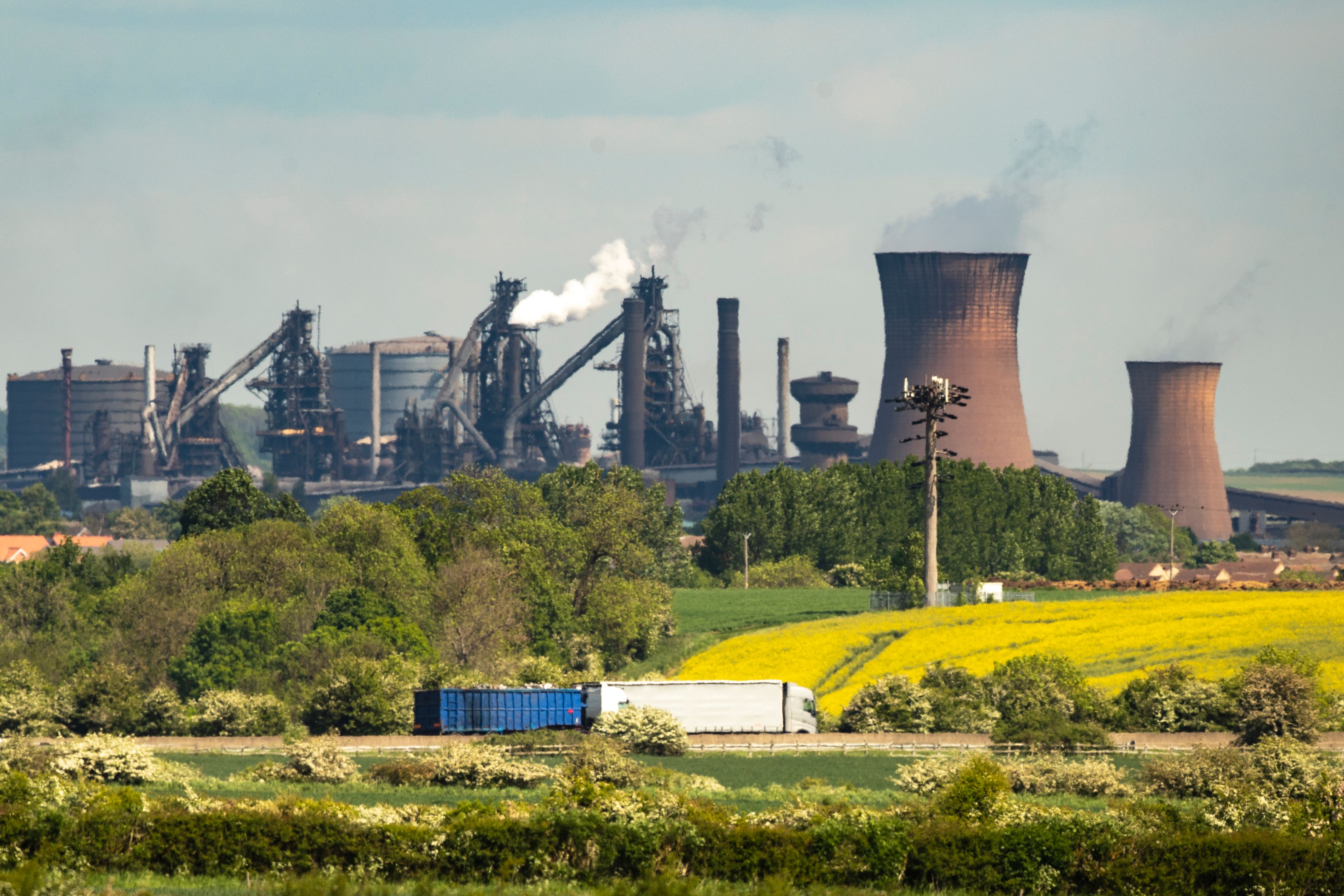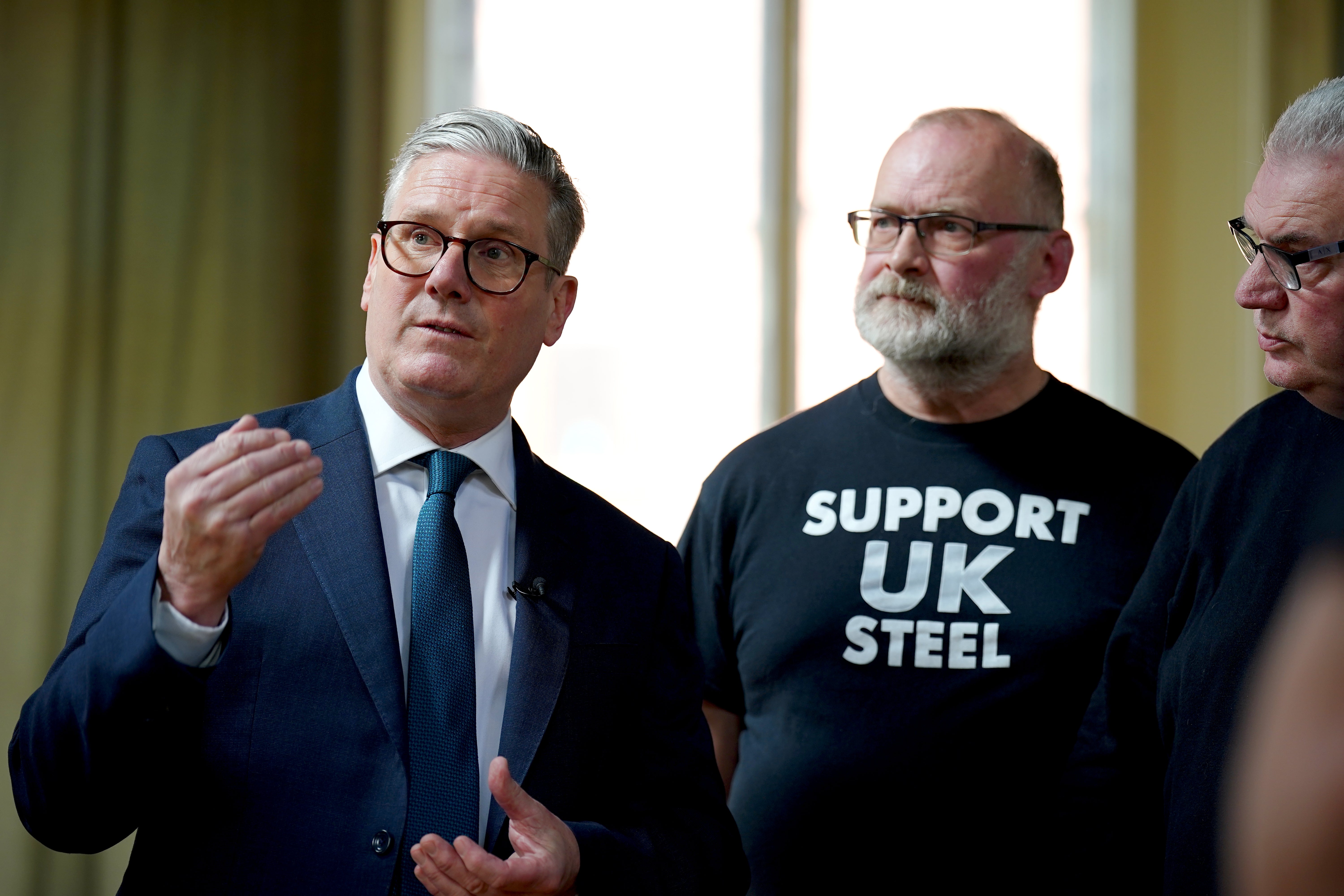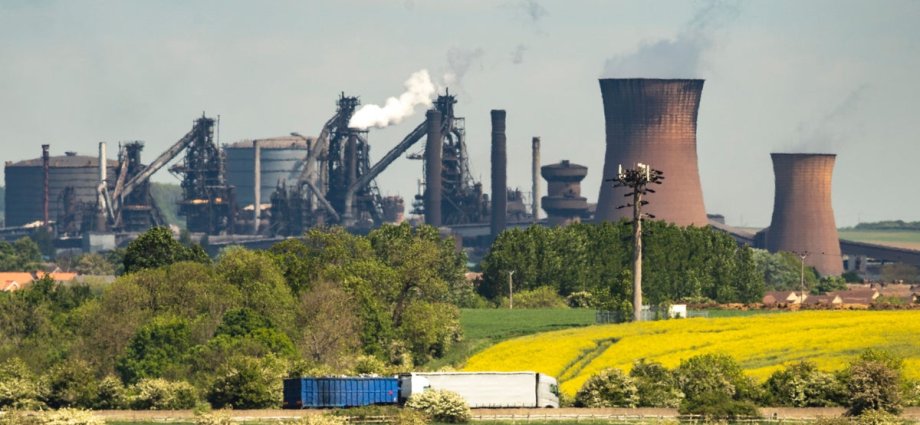Government officials and British Steel staff are in a desperate race to save its blast furnaces after what ministers believe was a plot to sabotage the Scunthorpe plant by its Chinese owners.
A crucial meeting is scheduled for Monday between the firm’s staff and civil servants aimed at rescuing Britain’s last primary steelmaking plant from permanent closure, costing thousands of jobs.
The government dramatically took control of the company on Saturday, kicking off a frantic hunt for the securing essential raw materials, including coking coal and iron ore, needed to keep the two blast furnaces at the Scunthorpe plant operational.

Once the furnaces are turned off, it is practically impossible to bring them back online, and officials believe British Steel’s Chinese owner Jingye had been planning to let the raw materials run out in a bid to sabotage the plant, shuttering the blast furnaces and making the UK reliant on Chinese exports of so-called virgin steel.
Luke de Pulford, executive director of the Inter-Parliamentary Alliance on China, warned: “It is an explicit strategy of the Chinese Communist Party to undermine the industrial base of foreign countries.”
On Sunday, business secretary Jonathan Reynolds said Chinese firms should be barred from investing in some sectors, including those vital to national security and key infrastructure.
“I wouldn’t personally bring a Chinese company into our steel sector,” he added, noting that British Steel fell into Chinese hands under Boris Johnson.
Mr Reynolds was unable to guarantee the furnaces could be saved, but said taking over the plant had given the government “a chance” to save it.
Treasury minister James Murray on Monday said Jingye had behaved “irresponsibly” and “accelerated” the crisis officials are now trying to avoid.
He said civil servants on the site are trying urgently to get raw materials to the Scunthorpe steelworks to keep the blast furnaces running.
Mr Murray confirmed the materials needed at the British Steel works were in the UK, and that government staff had been at the plant in North Lincolnshire since Saturday.
Speaking to Times Radio, Mr Murray said: “Their role is to make sure we do everything we can to make sure we get those raw materials to the blast furnaces in time and to make sure they continue operating.”
He refused to guarantee the furnaces will continue running, claiming the plant’s Chinese owners, Jingye, had “accelerated” the shut down of one furnace.
He said: “The raw materials, the shipments have arrived, they’re in the UK, they’re nearby. There were questions about getting them into the blast furnaces, that is what the officials are focused on right now.”
He added: “We know that the Government needed to do everything possible on Saturday to protect the future of steelmaking in the UK.
“We’re not just going to step aside and let the industry fail with the blast furnaces closing. We’ve been negotiating in good faith with Jingye but when it became clear they were accelerating the plans to close the blast furnaces, we had to step in.”
Dozens of businesses, including Tata and Rainham Steel, have rallied to help British Steel with offers of managerial support and raw materials following the Government’s takeover.
Mr Reynolds said: “When I said steelmaking has a future in the UK, I meant it.
“That’s why we’ve passed these new powers to save British Steel at Scunthorpe, and that’s why my team are already hard at work on the ground to keep jobs going and furnaces burning.”
Charlotte Brumpton-Childs, GMB union national officer, said she is “wholly reassured” that the coking coal bound for the furnaces at Scunthorpe will be “paid for and unloaded over the next couple of days” at Immingham Bulk Terminal as part of efforts to avert the permanent shutdown of Britain’s last primary steelmaking plant.
She told BBC Breakfast: “I spoke to British Steel late yesterday evening and was wholly reassured, actually.
“I’ve (been) told that the coke that’s at Immingham Bulk Terminal will be paid for and unloaded over the next couple of days and that Government are working at pace to secure the rest of the raw materials that are currently on the ocean.”
The need to secure raw materials and prevent the blast furnaces cooling was the primary reason for the Government recalling Parliament on Saturday to pass emergency legislation to keep the site open.
Jingye, British Steel’s Chinese owners, had not only stopped ordering raw materials but had begun selling off existing supplies, sparking concerns the plant could close within days.
Officials from the Department for Business and Trade (DBT), along with British Steel staff, will spend Monday working to bring nearby materials on to the site, as well as ensuring staff continue to be paid, the department said.

The offers of support from other businesses also mean that British Steel is reassessing its options.
This includes possibly reversing Jingye’s decision to take one of the blast furnaces temporarily offline as early as Monday using a “salamander tap”, a procedure said to be dangerous.
Ministers remain hopeful that a private investor can be found for British Steel, with the cost of modernising the Scunthorpe plant expected to run into billions of pounds.
But over the weekend, Mr Reynolds admitted that full nationalisation remained the most likely option in the short term.
He said: “Steel is vital for our national security and our ambitious plans for the housing, infrastructure and manufacturing sectors in the UK.
“We will set out a long-term plan to co-invest with the private sector to ensure steel in the UK has a bright and sustainable future.”
However, the Conservatives have accused the Government of acting “too late” and implementing a “botched nationalisation” after ignoring warnings about the risk to British Steel.
Shadow business secretary Andrew Griffith said: “The Labour Government have landed themselves in a steel crisis entirely of their own making. They’ve made poor decisions and let the unions dictate their actions.”











